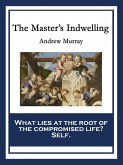In 'The Bondage of the Will', Martin Luther explores the theology of predestination and free will, engaging in a theological debate with Erasmus over the nature of human choice and God's sovereignty. Written in a clear and persuasive style, Luther presents his arguments with biblical references and logical reasoning, making it a seminal work in the development of Protestant theology. The book is a crucial text in understanding the Reformation movement and its implications on Christian beliefs. The arguments presented are structured and thought-provoking, challenging readers to reexamine their views on salvation and human agency. Martin Luther, a German theologian and key figure in the Protestant Reformation, wrote 'The Bondage of the Will' in response to Erasmus' views on free will. Luther's background as a monk and scholar influenced his strong convictions on the relationship between God's grace and human obedience, shaping his theological writings. I highly recommend 'The Bondage of the Will' to readers interested in philosophy, theology, and the history of Christianity. Luther's insights into the complexities of divine sovereignty and human will offer valuable perspectives on faith and salvation.
Dieser Download kann aus rechtlichen Gründen nur mit Rechnungsadresse in A, B, BG, CY, CZ, D, DK, EW, E, FIN, F, GR, H, IRL, I, LT, L, LR, M, NL, PL, P, R, S, SLO, SK ausgeliefert werden.









